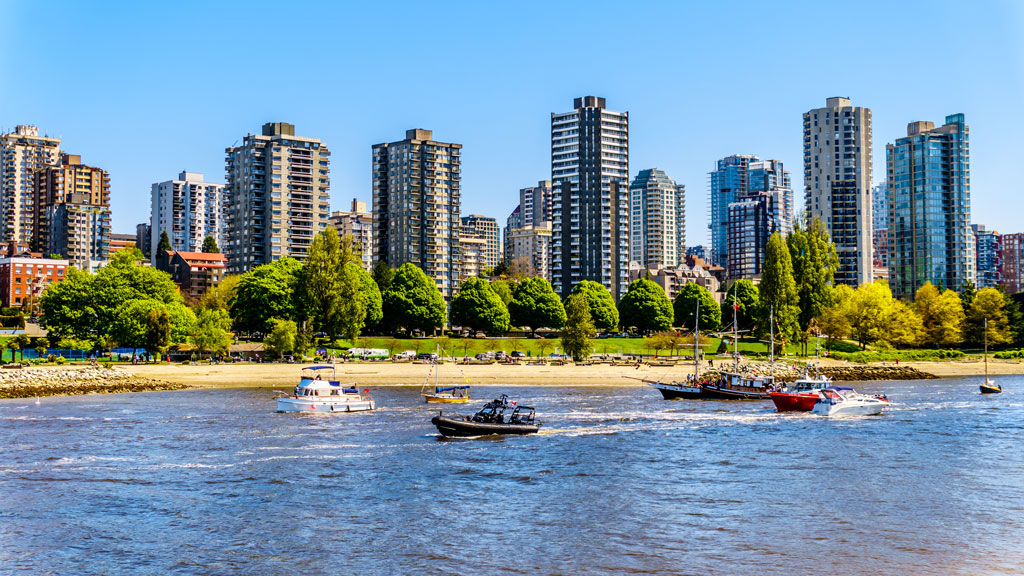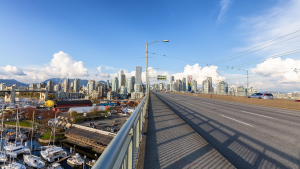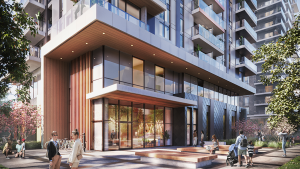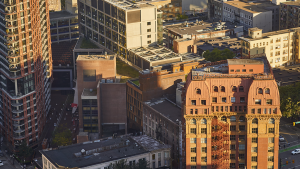The City of Vancouver has embarked on a generational project called the Healthy Waters Plan that will lay out a blueprint for eliminating chronic aquatic ecosystem pollution from sanitary sewers and storm water runoff.
The plan is being completed in three phases and will guide long-range investments, programs and policies to address pollution from sewer overflows and urban runoff and key issues related to climate change and aging infrastructure.
A team of planners, engineers and consultants has completed the initial phase of the plan and come up with a framework of guiding principles and objectives that define the vision of the strategy and what is necessary to achieve it.
The process included a technical assessment that documented the current state of the entire sewer and drainage system, defining present and future context and issues that need to be addressed in planning work, including funding and finance, aquatic health and risk, and various other matters.
The team also developed a priority action plan of short-term initiatives to improve water quality in Vancouver waterways that will be addressed in future phases of the plan development.
The plan is aimed at delivering in four key areas: healthy waterways, healthy and liveable watersheds, affordable and strategic service delivery, and adaptive risk and uncertainty.
Chris Baber, branch manager of Healthy Waters Planning, says the plan has now moved into phase two which involves evaluating a range of infrastructure, program and policy options that best align with the goals.
In the final phase, he says, the team will finalize the plan and “provide a comprehensive road map” to deal with runoff and risks.
The project is being led by the City of Vancouver and involves close collaboration with the Metro Vancouver Regional District, Tsleil-Waututh Nation, Musqueam Indian Band, and a range of stakeholders, including other levels of government, environmental non-profits and the development industry. Squamish Nation has so far declined to participate.
Vancouver City Council directed staff to develop a long-range plan for sewer and drainage in light of a range of issues, namely pollution from combined sewer overflows and rainwater runoff as well as the need to adapt to the impacts of climate change, including more extreme weather events, summertime heat and drought, and rising sea levels making the city more difficult to drain.
Aging and failing infrastructure in Vancouver has been identified as an issue and there is a need to secure capacity for population growth.
The Healthy Waters Plan will build on the Rain City Strategy, a green rainwater infrastructure and management road map for advancing and evolving Vancouver’s rainwater management practices and services.
The plan will incorporate commitments made to integrated water management and watershed health, such as the performance standard to capture and clean rainwater from a minimum of 48 millimetres per day. It will also define how grey and green infrastructure solutions are integrated to achieve optimal outcomes.
According to Baber, the final plan will recommend a combination of policies, programs and projects for each of Vancouver’s five drainage basins so that they deliver the best possible performance.
Four committees have been convened to support the decision-making process by informing the development of guiding principles and objectives and contributing to the technical foundations of the plan.
“When it comes to bringing the public in, we’re focused on demystifying our very complex sewer and drainage system and helping the public understand the range of issues and challenges that the city is facing, and the opportunities that we can realize with strategic planning,” Baber explains.
There is an urgency to the plan. With sea-levels rising, city officials anticipate it will be more difficult to drain low-lying areas without making the risk of flooding worse in other areas.
As Baber notes, sea water can also infiltrate into pipes, it is corrosive and places more strains on piped systems. Meanwhile, sea level rise can exacerbate loads on wastewater treatment plants and result in loss of treatment ability or service in areas of the city.
One goal of the Healthy Waters Plan is to cultivate a culture of care around the water and sewage and draining systems.
“The sewer and drainage system is not widely understood,” notes Baber. “It is a service that most ignore until it stops working, and when it stops working, the results can be catastrophic.”
While planning, designing and maintaining the system is the responsibility of government, there are many opportunities for residents to contribute to a well-functioning system, he says.
“When we educate folks about the impact they have, they can make choices and change behaviours with great effect. The more everyone cares about Vancouver’s water and the system that exists to drain our city of wastewater, the better the system will function for everyone and the environment.”
The plan is expected to be completed in 2024 and will be subject to approval from Vancouver City Council.











Recent Comments